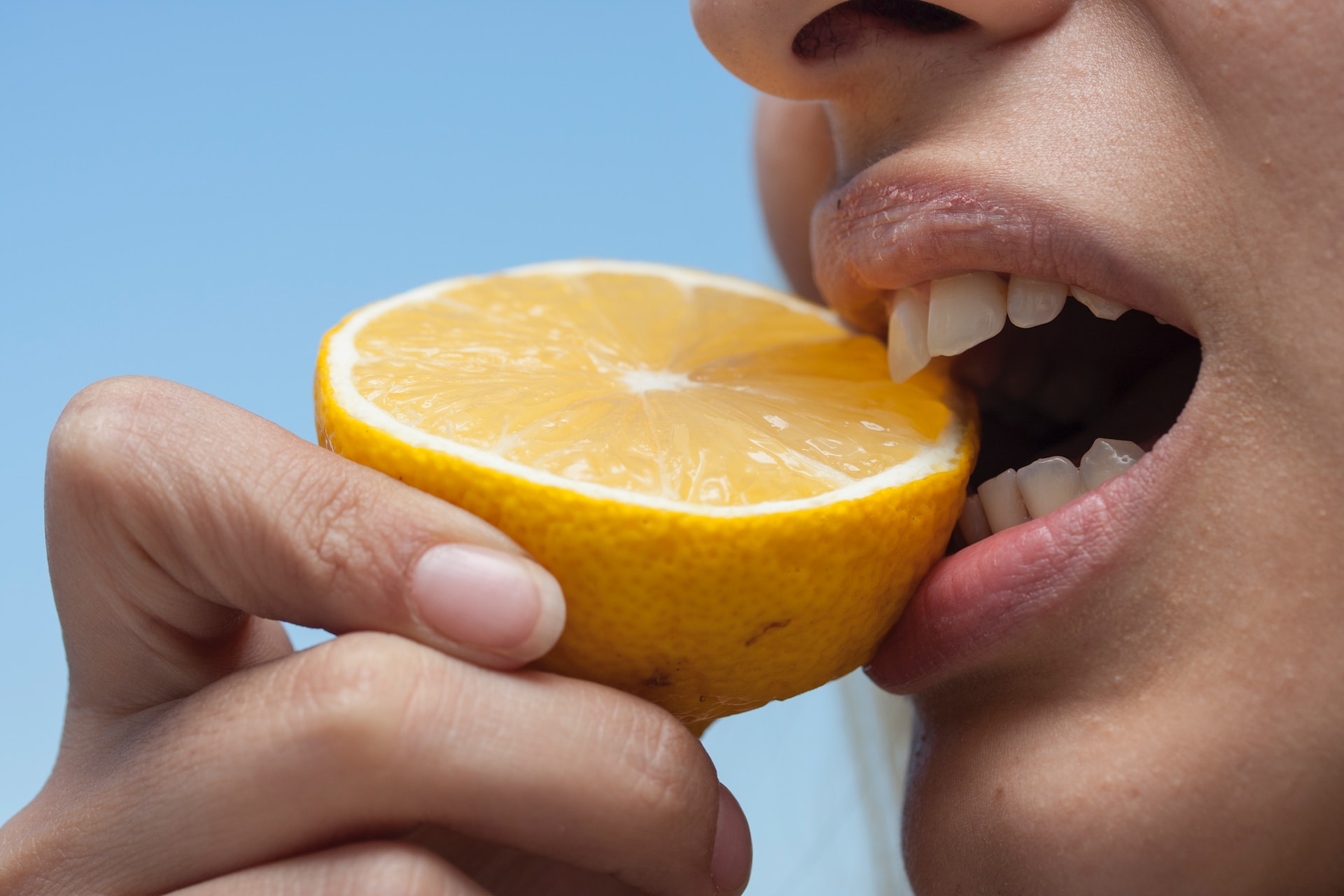Apr
19

A healthy mouth is not just about having sparkling white teeth; the condition of your gums also plays a crucial role in maintaining overall oral health. In this article, we’re going to explore the importance of healthy gums, recommend five foods that promote gum health, and discuss which foods to avoid for optimal gum care. Let’s take a look!
What are gums?
Gums, or gingiva, are the soft, pinkish tissues that surround and support your teeth. They cover the bones that hold the teeth in place, forming a protective barrier against bacteria and other harmful substances. Gums play a critical role in maintaining your oral health, as they help to keep your teeth anchored and ensure they function properly.
Why it’s important to maintain healthy gums
Maintaining healthy gums is essential for several reasons. Firstly, unhealthy gums can lead to periodontal diseases such as gingivitis and periodontitis: these conditions can cause gum inflammation, bleeding, bad breath, and eventual tooth loss if left untreated. Plus, periodontal diseases have even been linked to other systemic health issues, including diabetes, cardiovascular diseases, and chronic respiratory infections.
Healthy gums also contribute to a more attractive smile, as they provide a foundation for strong and properly aligned teeth; those with gum disease often end up developing receding gums, where the gums begin to pull away from the teeth. While this can often be reversed with receding gums treatment, prevention is much simpler and less costly.
Finally, maintaining gum health can help prevent oral pain and discomfort, allowing you to eat, speak, and smile with ease. In short, taking care of your gums is vital for overall oral health and wellbeing – so how can picking the right foods help?
5 Foods for healthy gums
Like any part of our body, we nourish our gums with our diet. Here are a few foods that have been scientifically proven to support healthy gums:
Leafy greens
Leafy greens such as spinach, kale, and collard greens are rich in essential vitamins and minerals, including Vitamin C, Vitamin K, and calcium, which promote gum health. Vitamin C helps reduce inflammation and fights gum infections, while Vitamin K and calcium support bone health and strengthen the tooth-supporting structures. And if you (or your children) are picky eaters, you can easily sneak greens into dishes such as pastas, or even add them to fruity smoothies. You won’t taste them, we promise!
Dairy products
Dairy products like milk, yoghurt, and cheese are high in calcium and phosphates, which help to neutralise acids in the mouth and promote enamel remineralisation. Additionally, the probiotics found in yogurt can help to maintain a healthy balance of bacteria in the mouth, reducing the risk of gum disease.
Read Next: Can Receding Gums Lead to Tooth Loss?
Green tea
Green tea contains antioxidants called catechins, which have been shown to reduce inflammation and fight gum disease-causing bacteria. Drinking green tea regularly can help to improve gum health and reduce the risk of periodontal disease, but do make sure to opt for green teas that aren’t loaded with excess sugar.
Crunchy fruits and vegetables
Eating crunchy fruits and vegetables like apples, carrots, and celery can help to remove plaque and stimulate saliva production, which is essential for maintaining a healthy oral environment. These foods also contain valuable nutrients, such as Vitamin A, Vitamin C, and fibre, which support gum health.
Fatty fish
Fatty fish like salmon, mackerel, and sardines are rich in omega-3 fatty acids, which are known for their anti-inflammatory properties. Consuming omega-3s can help to reduce inflammation in the gums and protect against periodontal disease.
And what foods to avoid?
To maintain healthy gums, it’s essential to limit or avoid certain foods that can harm your oral health. Some of these foods include:
Sugary foods
Sugary foods like chocolate, sweets, and fizzy drinks can contribute to tooth decay and gum disease by providing a food source for harmful bacteria in the mouth. Limit your consumption of sugary foods and opt for healthier alternatives when possible.
Sticky foods
Sticky foods, such as dried fruits and caramels, can cling to your teeth and gums, making it difficult for saliva to wash them away. Over time, this can lead to plaque buildup and gum disease.
Acidic foods
Acidic foods and drinks, like citrus fruits, tomatoes, and wine, can erode tooth enamel and irritate the gums, making them more susceptible to inflammation and infection. To minimise the impact of acidic foods on your gums, consume them in moderation and rinse your mouth with water after eating.
Starchy foods
Foods high in starch, such as white bread and chips, can easily get trapped in the crevices between teeth and gums, providing a breeding ground for harmful bacteria. Opt for whole-grain alternatives when possible and be diligent about brushing and flossing to remove any trapped food particles.
Alcohol
Excessive alcohol consumption can lead to dehydration, which can cause a decrease in saliva production. Saliva is crucial for maintaining a healthy oral environment, as it helps to wash away food particles and bacteria. Limit your alcohol intake and ensure you stay well-hydrated to promote gum health.
Read More: How can You Rebuild Receded Gums?











